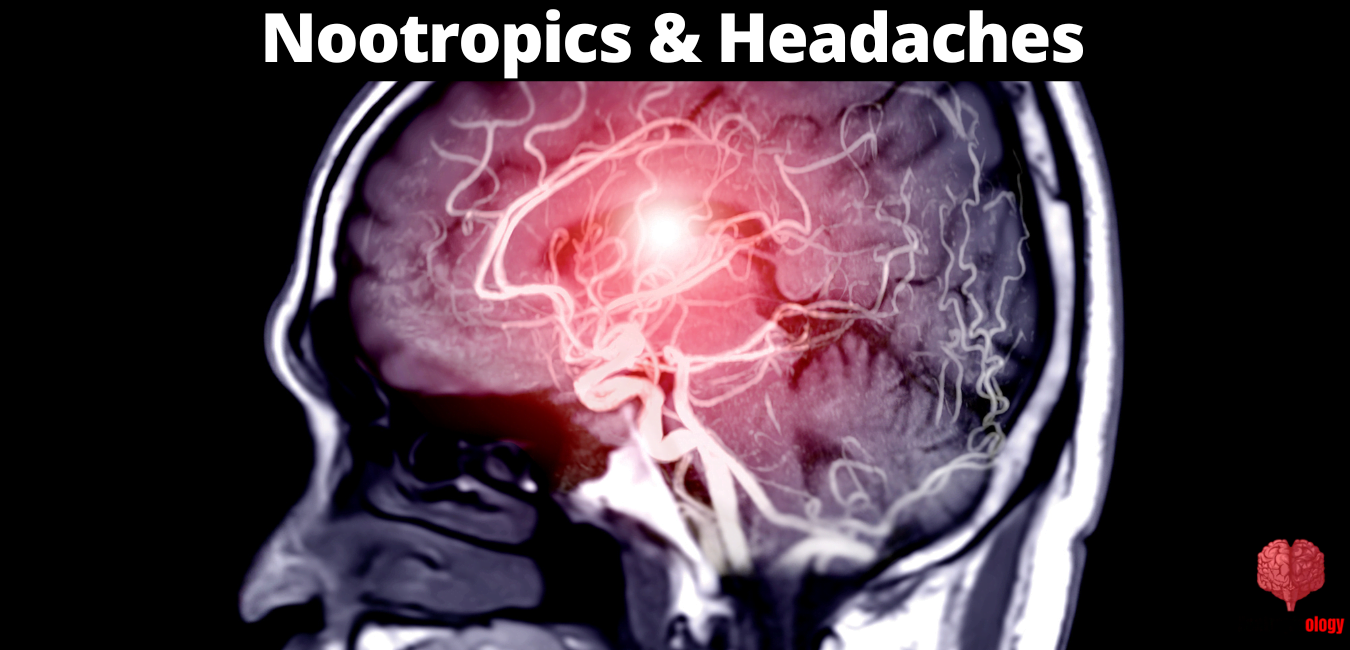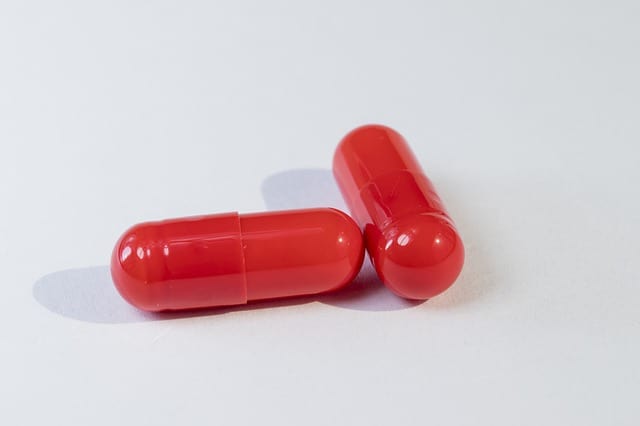
Nootropics, often referred to as "smart drugs" or cognitive enhancers, have gained significant popularity in recent years. As more people turn to these substances to boost their mental performance, questions about their side effects, including headaches, have become increasingly common. This comprehensive review aims to explore the relationship between nootropics and headaches, providing valuable insights for both novice and experienced users.
How Do Nootropics Affect the Brain?
Nootropics encompass a wide range of substances, both natural and synthetic, designed to enhance cognitive function. These compounds work by modulating neurotransmitter systems, improving cerebral blood flow, or protecting neurons from damage. Common nootropics include racetams, cholinergics, adaptogens, and various herbal extracts. Each class of nootropics interacts with the brain in unique ways, potentially influencing the occurrence of headaches.[1]
How Do Different Types of Nootropics Interact with Neural Pathways?
Different nootropics target specific neural pathways and neurotransmitter systems. For example, racetams like piracetam and aniracetam are thought to enhance cholinergic function and modulate glutamate receptors. Cholinergics such as alpha-GPC increase acetylcholine levels in the brain. Adaptogens like Rhodiola Rosea help regulate stress responses. These diverse mechanisms of action can have varying effects on cerebral blood flow, neurotransmitter balance, and overall brain function, which may contribute to or alleviate headaches in some individuals.[2]
Can Nootropics Trigger Headaches?

While many users report positive experiences with nootropics, headaches are indeed a potential side effect for some individuals. The occurrence of headaches can depend on various factors, including the specific nootropic used, dosage, individual physiology, and concurrent use of other substances.
What Are the Common Nootropics Associated with Headaches?
Certain nootropics are more commonly associated with headaches than others. Racetams, particularly when used without adequate choline supplementation, are often cited as potential headache triggers. Some users report headaches with high doses of caffeine or L-theanine. Modafinil, a popular wakefulness-promoting agent, can also cause headaches in some individuals. It's important to note that while these substances may trigger headaches in some users, others may experience no such side effects.
How Do Dosage and Individual Factors Influence Headache Occurrence?
Dosage plays a crucial role in the likelihood of experiencing headaches from nootropics. Exceeding recommended doses can increase the risk of side effects, including headaches. Individual factors such as sensitivity to certain compounds, pre-existing conditions, and overall health status can also influence susceptibility to nootropic-induced headaches. Hydration levels, sleep quality, and stress can further modulate the body's response to nootropics and the potential for headaches.
Mechanisms Behind Nootropic-Induced Headaches
Understanding the mechanisms behind nootropic-induced headaches can help users and healthcare providers better manage and prevent these side effects. Several theories exist to explain why some nootropics might trigger headaches in certain individuals.
How Do Nootropics Affect Cerebral Blood Flow and Pressure?
Many nootropics, particularly those that enhance cognitive function by increasing cerebral blood flow, can potentially lead to headaches. Substances like vinpocetine or Ginkgo biloba, which are known to improve brain circulation, might cause temporary changes in intracranial pressure. These changes can trigger headaches in sensitive individuals. Additionally, nootropics that modulate neurotransmitter levels, such as dopamine or serotonin, can indirectly affect blood vessel dilation and contraction, potentially leading to headaches.
What Role Does Neurotransmitter Modulation Play in Headache Formation?
Nootropics often work by altering neurotransmitter levels or receptor sensitivity. This modulation can sometimes lead to an imbalance, potentially triggering headaches. For instance, excessive glutamate activity, which can be influenced by certain racetams, may contribute to tension-type headaches. Similarly, changes in serotonin levels, affected by nootropics like 5-HTP or St. John's Wort, can impact headache occurrence. Understanding these mechanisms can help in tailoring nootropic regimens to minimize the risk of headaches.
Preventing and Managing Nootropic-Induced Headaches
While headaches can be a concern for nootropic users, several strategies can help prevent and manage this side effect. Proper supplementation, dosage adjustment, and lifestyle factors all play crucial roles in minimizing the risk of nootropic-induced headaches.
What Supplementation Strategies Can Help Prevent Headaches?
One of the most effective strategies for preventing nootropic-induced headaches is ensuring proper choline supplementation, especially when using racetams. Choline serves as a precursor to acetylcholine, a neurotransmitter heavily involved in cognitive processes. Inadequate choline levels can lead to headaches in some users. Additionally, combining nootropics with neuroprotective antioxidants like Vitamin C or E may help reduce the likelihood of headaches. Magnesium supplementation has also shown promise in preventing and alleviating various types of headaches.
How Can Users Adjust Their Nootropic Stack to Minimize Headache Risk?
Adjusting the nootropic stack can significantly reduce the risk of headaches. Start with lower doses and gradually increase to find the optimal level. Cycling nootropics, or taking regular breaks, can prevent tolerance and reduce the likelihood of side effects. If a particular nootropic consistently causes headaches, consider alternatives with similar benefits but different mechanisms of action. For example, if racetams trigger headaches, adaptogens like Bacopa Monnieri might be a suitable alternative for cognitive enhancement.
User Experiences and Anecdotal Evidence
While scientific studies provide valuable insights, user experiences and anecdotal evidence offer practical perspectives on nootropics and headaches. Online forums and communities dedicated to nootropics are rich sources of information on this topic.
What Do User Reports Reveal About Nootropics and Headaches?
User reports vary widely, reflecting the diverse responses individuals have to nootropics. Many users report no issues with headaches, while others describe them as a common side effect. Some users find that headaches diminish with continued use, suggesting an adaptation period. Others report that certain combinations of nootropics are more likely to cause headaches than individual substances. These anecdotal accounts, while not scientifically rigorous, can provide valuable insights into the real-world experiences of nootropic users.
How Do Experienced Users Manage Nootropic-Related Headaches?
Experienced nootropic users have developed various strategies to manage headaches. Some report success with pre-emptive measures such as ensuring proper hydration and electrolyte balance. Others find that taking nootropics with food can reduce the likelihood of headaches. Many users emphasize the importance of sleep quality and stress management in preventing nootropic-induced headaches. Some experienced users also recommend keeping a detailed log of nootropic use, dosages, and side effects to identify patterns and optimize their regimen.
Nootropics That May Help Alleviate Headaches
Interestingly, while some nootropics can cause headaches, others may actually help alleviate them. Understanding these potential benefits can be valuable for individuals seeking cognitive enhancement without exacerbating headache issues.
Which Nootropics Show Promise in Headache Prevention or Treatment?
Several nootropics have shown potential in preventing or treating headaches. Magnesium, often considered a nootropic for its cognitive benefits, has been extensively studied for its role in migraine prevention. Omega-3 fatty acids, particularly EPA and DHA, may help reduce the frequency and intensity of headaches. Coenzyme Q10, known for its neuroprotective properties, has also shown promise in migraine prevention. Some users report that low doses of caffeine combined with L-theanine can help alleviate tension headaches while providing cognitive benefits.[3]
How Do These Headache-Alleviating Nootropics Work?
The mechanisms by which these nootropics alleviate headaches vary. Magnesium, for instance, helps regulate neurotransmitter release and reduces cerebral blood vessel constriction. Omega-3 fatty acids have anti-inflammatory properties that may help reduce headache intensity. Coenzyme Q10 improves mitochondrial function and reduces oxidative stress, which may play a role in migraine prevention. Understanding these mechanisms can help users make informed decisions about incorporating these substances into their nootropic regimen, especially if headaches are a concern.
The Role of Lifestyle Factors in Nootropic-Induced Headaches
While the focus is often on the nootropics themselves, lifestyle factors play a crucial role in determining how an individual responds to these substances, including the likelihood of experiencing headaches.
How Do Diet, Sleep, and Stress Impact Nootropic Effectiveness and Side Effects?
Diet, sleep, and stress levels can significantly influence the effectiveness of nootropics and the occurrence of side effects like headaches. A balanced diet rich in nutrients supports overall brain health and may enhance the positive effects of nootropics while reducing adverse reactions. Adequate sleep is crucial for cognitive function and can influence how the body processes nootropics. High stress levels can exacerbate headaches and may interact negatively with certain nootropics. Users should consider these factors when assessing their nootropic regimen and any associated headaches.
What Lifestyle Changes Can Complement Nootropic Use and Reduce Headache Risk?
Implementing lifestyle changes can complement nootropic use and potentially reduce the risk of headaches. Regular exercise has been shown to improve cognitive function and may enhance the effects of nootropics while reducing stress-related headaches. Mindfulness practices like meditation can help manage stress and may reduce the frequency of tension headaches. Maintaining proper hydration is crucial, as dehydration can exacerbate headaches and interfere with the body's ability to process nootropics effectively. These lifestyle factors, when optimized, can create a synergistic effect with nootropics, potentially enhancing benefits while minimizing side effects like headaches.
Conclusion
The relationship between nootropics and headaches is complex and multifaceted. While some users may experience headaches as a side effect of certain nootropics, others find relief from headaches through nootropic use. The variability in individual responses highlights the importance of personalized approaches to cognitive enhancement.
Key takeaways from this review include:
- Not all nootropics cause headaches, and individual responses can vary widely.
- Proper dosing, choline supplementation, and stack optimization can help prevent nootropic-induced headaches.
- Some nootropics, such as magnesium and omega-3 fatty acids, may actually help alleviate headaches.
- Lifestyle factors play a crucial role in how individuals respond to nootropics and their propensity for headaches.
- User experiences and anecdotal evidence provide valuable insights, but should be considered alongside scientific research.
For those considering nootropic use, it's crucial to approach these substances with caution and informed awareness. Starting with lower doses, carefully monitoring effects, and consulting with healthcare professionals can help minimize the risk of headaches and other potential side effects. As research in the field of nootropics continues to evolve, our understanding of their effects on brain health, including their relationship with headaches, will undoubtedly deepen.
Ultimately, the goal of nootropic use is to enhance cognitive function and overall well-being. By carefully considering the potential benefits and risks, including the possibility of headaches, users can make informed decisions about incorporating these substances into their cognitive enhancement strategies. As with any approach to health and wellness, a balanced, thoughtful, and personalized approach is key to maximizing benefits while minimizing potential drawbacks.
- Malík, Matěj, and Pavel Tlustoš. “Nootropics as Cognitive Enhancers: Types, Dosage and Side Effects of Smart Drugs.” Nutrients vol. 14,16 3367. 17 Aug. 2022, doi:10.3390/nu14163367
- Wang, Zeneng et al. “The Nutritional Supplement L-Alpha Glycerylphosphorylcholine Promotes Atherosclerosis.” International journal of molecular sciences vol. 22,24 13477. 15 Dec. 2021, doi:10.3390/ijms222413477
- Yablon, Lisa A., and Alexander Mauskop. “Magnesium in headache.” Magnesium in the Central Nervous System, edited by Robert Vink et. al., University of Adelaide Press, 2011.
source https://nootropicology.com/can-nootropics-cause-headaches/

No comments:
Post a Comment